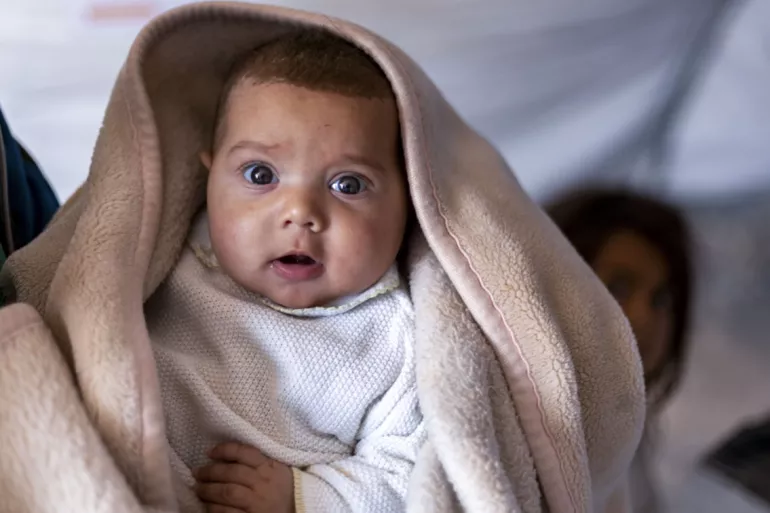Claim: Governments of South Korea and Japan incentivise black men to have children
Source: Viral social media video
Verdict: MISLEADING
Researched by Sedem Kwasigah
A TikTok video of a woman who identified herself as Tasha claiming the governments of Japan and South Korea are incentivising black men to have children in their countries has gone viral on social media platforms including YouTube and X.
On Monday, May 20, 2024, GhanaFact found a video (1) with the claim captioned “Japan is desperately in need of black men to have more babies,” which has gathered 24.2k comments, 211.3k likes, reposted 103.4k times and bookmarked by 35,600 TikTok users.
“Black men, Japan needs you. Japan is calling specifically for black men. I know you are saying why Tasha? They said they need babies and black men specifically make lots of them. After South Korea proposed last week $75,000 per baby that a family has. Japan is in desperate need okay? And they are calling all black men, specifically immigrants to come and impregnate their women so that they can save their dying population,” she said.
Meanwhile, a new set of social media users had created new videos and showing excerpts of the original video which can be found on multiple platforms, including Tiktok (1,2,3), YouTube (1,2,3), and X (1,2,3) with voiceovers claiming the Japanese government was willing to pay as much as $75,000 to black men who would respond to the call.
In another video(1) published on X, the same author, Tasha, claimed that the South Korean government was also paying $75,000 per baby born to people living in the country. Tasha has a TikTok account unwinewithtashak with 682.5k followers, a YouTube account with 1.24m followers, and an X account with 53.1K followers.
This report seeks to fact-check whether;
- The South Korean government is paying $75,000 to inhabitants for every child born.
- The Japanese government is granting invitations to black immigrants to repopulate the country due to low birth rate.
Claim 1
While investigating this claim, GhanaFact discovered an article by CNN about a construction company in Seoul, South Korea, Booyoung Group, which announced in February 2024, to pay their employees 100 million Korean won ($75,000) if they have a baby.
The company is reported to have already paid 7 billion Korean won ($5.25 million) in cash to employees who have had 70 babies since 2021.
GhanaFact found a news telecast of the company announcing that they paid the equivalent of $5.25 million for 70 babies born since 2021.
Meanwhile, GhanaFact has not found any government offer of bonuses worth the estimated $75,000 to parents of newborns in South Korea despite checks in the country’s 2024 Budget Proposal and 2023-2027 National Fiscal Management Plan.
In the 2024 budget under the heading of Ease burdens of childbirth and child-rearing; the government plans to;
- Inject 9 trillion won to increase housing stability for families with a newborn child under two years; reduce income requirements for purchasing or leasing houses as well as present a prioritized housing supply system.
- Extend the period of parental leave for working parents for the first time since 1995. (maximum 12 → 18 months).
- Expand a monthly allowance for parents with a child aged 0 to 1 year. (0 years old: 700,000 → 1 million won, 1-year-old: 350,000 → 500,000 won) which is between ($730 – $365).
The initiative to pay parents of newborns $75,000 was a corporate decision by one company and not a government initiative.
Verdict
The claim is therefore rated as misleading.
Claim 2
Following an online search by GhanaFact, the team found no official statement from the Japanese government or news report from any credible media organisation about the government incentivising black men to have children in the country.
In 2022, the Japanese government indicated it was planning to offer couples extra money to have children. “The next six to seven years will be Japan’s final opportunity to reverse the downward trend in births,” the minister of state in charge of child policy, Masanobu Ogura said in March, 2024.
From April 2025, “expectant mothers will receive a payment of 100,000 yen while new parents will receive 100 per cent of their take-home monthly pay for up to four months of maternity or paternity leave, up from 80 per cent previously,” a report by the South China Morning Post news platform revealed.
Meanwhile, the Japanese Ministry of Foreign Affairs has also introduced a new short-stay digital nomads visa for;
- Individuals wishing to work remotely in Japan for a period not exceeding six months.
- Spouse or child accompanying an individual wishing to stay in Japan for a period not exceeding six months while working remotely.
The visa application requirements for eligible applicants exclude countries from Africa.
Verdict
The claim that Japan is inviting black men to help boost the country’s low birth rate is rated false.





